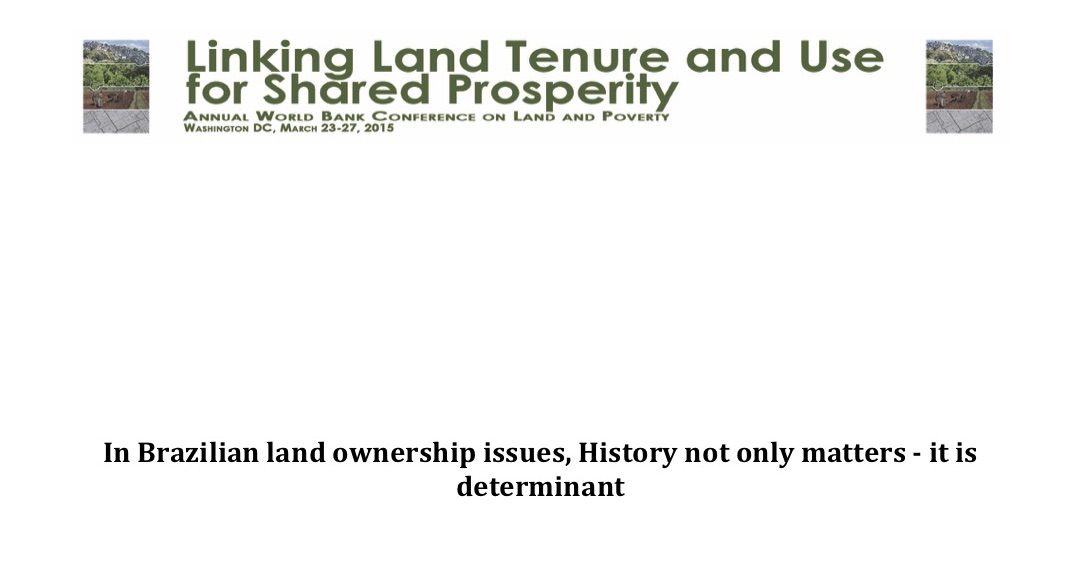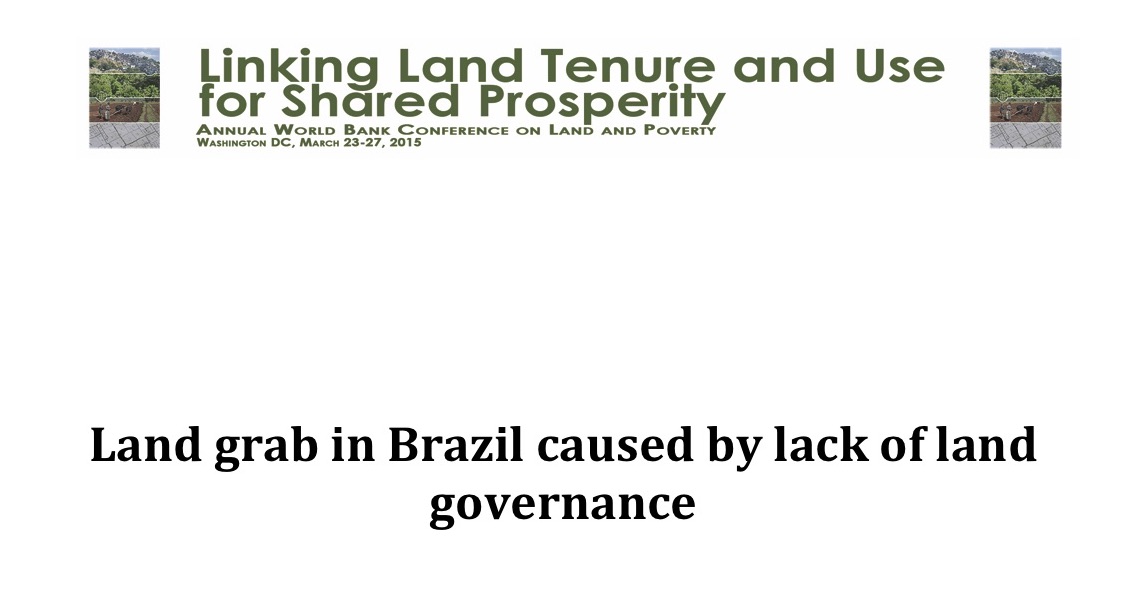The World Bank is a vital source of financial and technical assistance to developing countries around the world. We are not a bank in the ordinary sense but a unique partnership to reduce poverty and support development. The World Bank Group has two ambitious goals: End extreme poverty within a generation and boost shared prosperity.
- To end extreme poverty, the Bank's goal is to decrease the percentage of people living on less than $1.25 a day to no more than 3% by 2030.
- To promote shared prosperity, the goal is to promote income growth of the bottom 40% of the population in each country.
The World Bank Group comprises five institutions managed by their member countries.
The World Bank Group and Land: Working to protect the rights of existing land users and to help secure benefits for smallholder farmers
The World Bank (IBRD and IDA) interacts primarily with governments to increase agricultural productivity, strengthen land tenure policies and improve land governance. More than 90% of the World Bank’s agriculture portfolio focuses on the productivity and access to markets by small holder farmers. Ten percent of our projects focus on the governance of land tenure.
Similarly, investments by the International Finance Corporation (IFC), the World Bank Group’s private sector arm, including those in larger scale enterprises, overwhelmingly support smallholder farmers through improved access to finance, inputs and markets, and as direct suppliers. IFC invests in environmentally and socially sustainable private enterprises in all parts of the value chain (inputs such as irrigation and fertilizers, primary production, processing, transport and storage, traders, and risk management facilities including weather/crop insurance, warehouse financing, etc
For more information, visit the World Bank Group and land and food security (https://www.worldbank.org/en/topic/agriculture/brief/land-and-food-security1
Resources
Displaying 1006 - 1010 of 4906Improving Environmental Sustainability in Road Projects
The focus of this document is to provide
a wide range of ideas and options to improve the inclusion
of environmental sustainability throughout the road
transportation project cycle (system planning, project
planning and design, construction, and operation and
maintenance) based on environmental sustainability
indicators and highlighting environmentally sustainable
products and materials for road construction. Sustainable
Good Policies and Practices on Rural Transport in Africa : Monitoring and Evaluation
This publication is part of a series
aimed at promoting good policies and practices on rural
transport in Africa. A recent review of the status of Rural
Transport Knowledge Products and Practice (Riverson, 2012)
identified a number of knowledge gaps and recommended the
production of working papers to address these. One of these
gaps was the absence of robust tools, including relevant
indicators and instruments, to measure the impact of rural
The Philippines : Toward a Better Investment Climate for Growth and Productivity
This working paper concerns the growth
of investment climate in the Philippines. There are several
resounding ideas in areas both positive and negative. The
growth potential in the Philippines is considerable. The
country has significant natural resources; a large pool of
managerial and entrepreneurial talent; and widespread
proficiency in English. The Government's Medium Term
Development Plan (MTDP), 2005-2010 sets ambitious growth and
In Brazilian land ownership issues, History not only matters - it is determinant
From colonial to modern times, Brazilian agricultural property has remained immersed in a chaotic vortex of deregulation. Attempts of institutional reform - such as the Lei de Terras (Land Law) of 1850 - have been largely unsuccessful, whilst providing legal grounds for land grab by large estates and narrowing the scope of possibilities open for legitimate reevaluations of the first institutional landmark on land use and ownership in the country - the sesmarias.
Land grab in Brazil caused by lack of land governance
Brazil has the fifth-largest national land area in the world and this land resource represents a critical asset for the country’s urban, agricultural, and economic development, also providing essential environmental services. Nevertheless, it has a historical lack of governance over its lands, failing to provide secure land rights and to control the extensive frauds resulting in public and private land grabs. The objective of this study is to depict evidence of these land grabs and propose a typology for analyzing them.








